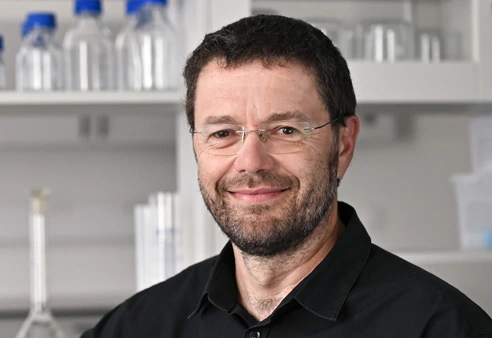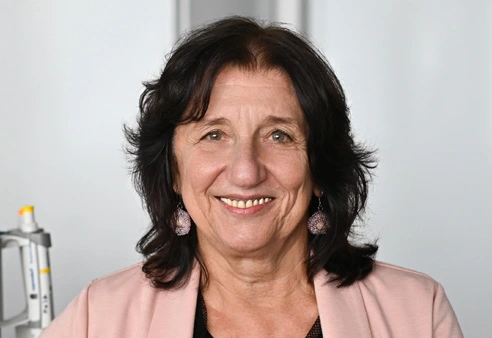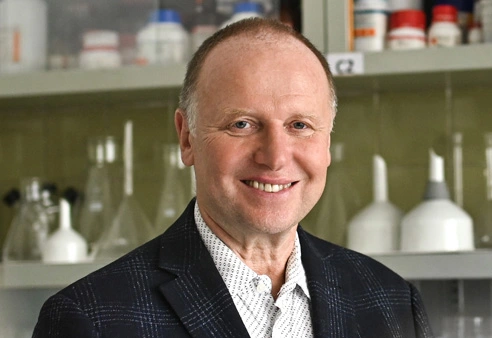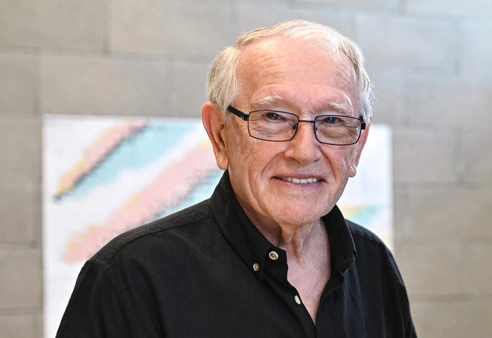Her research has allowed the creation of new methods of chemical safety assessment that do not cause suffering to experimental animals. Dr. rer. nat., Ing. Helena Kanďárová, ERT is a scientist who likes to see the results of her work implemented in practice. That is why she has focused on research into the development and validation of innovative methods in toxicology that replace animal testing while providing more reproducible results than those provided by test animals. She is currently the head of the Institute of Experimental Pharmacology and Toxicology of the Slovak Academy of Sciences. She shares her knowledge as an educator at the Institute of Biochemistry and Microbiology of the Faculty of Chemical and Food Technology of the Slovak University of Technology.
For chemicals, cosmetics, pharmaceuticals, pesticides and medical devices, but also any other consumer products made of chemicals, to be able to get on the market they first need to be tested and their suitability for humans and the environment needs to be verified. Many are tested on animals. Helena Kanďárová’s work has contributed to the creation of methods that work with cell lines and 3D tissue cultures made of human cells. These can be used, for example, to test skin or eye irritability, skin causticity or phototoxicity without the need for additional animal testing.
She got to her research field during her bachelor’s studies at the Faculty of Chemical and Food Technology of the Slovak University of Technology, where she was captivated by the topic of cosmetic safety assessment by alternative methods, without lab animals. During her postgraduate studies at the Freie Universität Berlin, in co-operation with the German Federal Institute for Risk Assessment she focused on the field of tissue engineering and work with in vitro 3D tissue models of skin and the cornea. She learned not only to optimise these models and methods, but also to lead international validations, the results of which helped implement the developed methods into EU and OECD regulations concerning chemicals, pharmaceuticals and medical devices.
“It’s a very expensive field that is also very particular about lab equipment, which is why it was almost impossible to work in this field in Slovakia 20 years ago, when I chose it. I had to go abroad for a time, first to Germany and then to the United States, if wanted to really work on my research,” she explains, adding that she prefers the results of her work to be implemented in practice as soon as possible – although in her area of applied research this can mean up to 10 to 15 years.
In 2009, she returned from the United States to Slovakia and founded the European headquarters of a biotechnology company that makes some of the best tissue models in the world. During this time, she continued her scientific work in the field of topical toxicity and the results she achieved together with her research teams, in the private sphere and later in academia, are now implemented in the international legislation that governs chemical, cosmetic and medical device safety assessment.
“One experiment is no experiment at all. You need to perform a series of trials and errors to get to a method or model that produces relevant and reproducible results,” Helena Kanďárová says. She claims scientists need to have the patience to improve and repeat tests as many times as necessary to achieve comparable or better results than those they could get on an animal model. Only then is the method reliable and they can move on to its formal validation. If the validation goes well, the next step is the implementation into legislature.
“Scientific work has always been an important part of my life; it helps me understand reasons and consequences and keeps me curious and on my toes. It is just, and every patient scientist will be eventually rewarded. Our society needs science to not get lost in darkness and assumptions, to provide tangible facts that we can build upon,” Helena Kanďárová says about her journey through life. It has taught her discipline, resilience and patience, which previously she lacked.
Helena Kanďárová has received several significant international awards for her research. In 2021, she was awarded the Doerenkamp-Zbinden prize, a year later she was awarded the Björn Ekwall Memorial Award and EUROTOX Lecture Award for her long-term contributions in the implementation of alternative methods in toxicology. In her free time, she manages the European Society of Toxicology In Vitro (ESTIV) which she has been presiding over since 2020. She likes to play the piano and dabbles in amateur genealogy.



